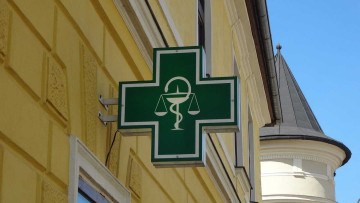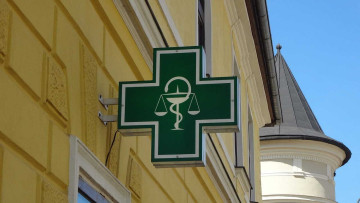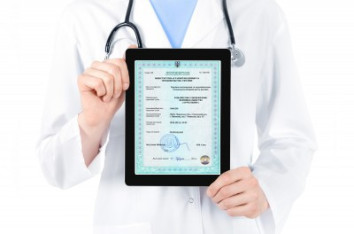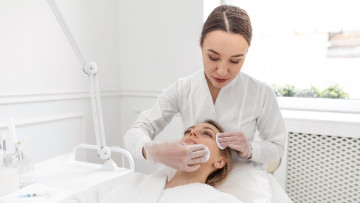Licensing of medical institutions
Licensing of medical institutions is an important stage in the process of opening and operating healthcare facilities. To obtain a permit, it is necessary to comply with all legislative requirements, prepare the appropriate package of documents and undergo an inspection by the competent authorities. Errors or shortcomings can lead to a refusal to issue a license, which delays the start of operations. That is why many owners of medical institutions seek legal assistance to avoid possible problems.
Legal stages of licensing of medical institutions
The process of licensing medical institutions in Ukraine goes through several key stages that are necessary to obtain official permission to conduct medical activities:
- Preparation of documents: The constituent documents of the institution are collected. Internal regulations are developed and approved. Documents are drawn up confirming the qualifications of medical personnel and compliance of the premises with sanitary standards.
- Submission of the application: The application is submitted to the licensing authority. All necessary documents are attached to the application.
- Verification and examination: The licensing authority checks the completeness and correctness of the documents for issuing a license to medical institutions. An examination of the conditions for conducting medical activities is carried out, including an inspection of the premises, equipment and personnel qualifications.
- Decision-making and issuance of a license: Based on the inspection and examination, a decision is made to issue or refuse licensing to a medical institution. In case of a positive decision, a license is issued, which allows the institution to officially provide medical services.
Following all legal procedures and requirements allows a medical institution to obtain a license without unnecessary difficulties. To avoid errors and delays, it is advisable to contact a qualified lawyer who will help you go through all the stages correctly.
Terms of providing the service of issuing a license for medical institutions
Legal advice on licensing medical institutions can be provided under the following conditions:
- Compliance of the premises with sanitary and technical standards: the premises must be equipped in accordance with standards that ensure the safety and comfort of patients.
- Qualified personnel: medical personnel must have the appropriate education, certificates and licenses.
- Necessary equipment: the medical institution must be equipped with all the necessary equipment to provide the declared services.
- Compliance of the activity with the licensed type: services must comply that specified in the license.
Before applying for a license, it is important to check the institution's compliance with all requirements. This will help to avoid refusal and the need to correct deficiencies, which can significantly delay the start of operations.
Terms under which the service of issuing a license for medical institutions

Non-compliance of the premises with requirements: if the premises do not meet sanitary or technical standards.

Unqualified personnel: if the medical personnel do not have the necessary education, certificates and licenses.

Lack of necessary equipment: if the equipment does not meet the requirements or is insufficient to provide medical services.
How to independently obtain a license for a medical institution?
Obtaining a license for medical activities is possible independently, but for this it is necessary:
- Study the legislative framework: familiarize yourself with the laws and regulations governing medical activities and licensing, health care license.
- Prepare documents: collect all the necessary documents, including constituent documents, confirming the qualifications of personnel, technical passports for equipment, etc.
- Consult a lawyer: although you can go through the process yourself, consulting with a lawyer can help avoid mistakes.
- Submit an application: submit a set of documents to the licensing authority and monitor the review process.
- Pass inspections: be ready for inspections and examinations by the licensing authority.
Despite the possibility of independently completing licensing procedures, even a minor error can lead to a delay or refusal to issue a permit. Therefore, contacting an experienced lawyer will help simplify the process and avoid possible risks.
Frequently asked questions about licenses for medical institutions
Question
How to license a medical office?
Answer
Constituent documents, documents for premises, confirmations To license a medical office, it is necessary to prepare and submit a set of documents, including constituent documents, documents for equipment and confirmation of personnel qualifications. After submitting the application, the licensing authority will conduct an inspection and examination, based on the results of which a license for medical activities will be issued.
Question
How to license a medical office in a kindergarten?
Answer
In Ukraine, to license a medical office in a kindergarten, it is necessary to submit ь an application to the Ministry of Health along with a set of documents confirming compliance with sanitary and hygienic requirements, the availability of qualified medical personnel and the necessary equipment. After checking the provided materials and compliance with all standards, a license for medical activities in the institution will be issued.
Question
Is it possible to license a medical office in a sports school?
Answer
Yes, in Ukraine you can get a license for a medical office in a sports school if the office meets sanitary and technical requirements, and is also equipped with the necessary equipment and staffed with qualified medical personnel. To do this, you must submit an application and relevant documents to the Ministry of Health or its territorial bodies.
What does the cost of the service of licensing medical institutions depend on?
The cost of legal assistance in licensing medical institutions depends on several key factors. Firstly, the complexity and scale of the institution: licensing a private office will be simpler and cheaper than issuing permits for a large clinic or network of medical centers. Secondly, the scope of the lawyer's work: the price may increase if it is necessary to correct errors in documents, accompany inspections or appeal refusals to issue a license. The urgency of the service also affects - if you need to obtain a license in a short time, the costs will be higher. The experience and reputation of a lawyer or law firm also matter: the services of leading specialists are more expensive, but guarantee minimization of risks.
ConclusionThe licensing process for medical institutions is complex and requires a careful approach. Legal support helps medical institutions go through all stages of obtaining a license faster and smoothly, reduce the risks of refusal and ensure compliance with legislative requirements. Turning to experienced lawyers allows you to focus on the main thing - providing quality medical services without unnecessary bureaucratic obstacles.








































